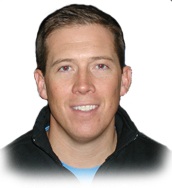Jan 29, 2015Coaching Your Coaches
 By Ryan Johnson
By Ryan Johnson
As a strength and conditioning coach, one of the most important parts of your job is educating and gaining the confidence of the sport coaches you work with. Ryan Johnson, CSCS, Coach Practitioner and Strength and Conditioning Coach at Wayzata High School in Plymouth, Minn., shares his thoughts on teaching coaches about the value of strength training, especially as it pertains to multi-sport athletes.
Well the days are getting longer and the temperatures are up–and so are my spirits. While working the Texas vs. The Nation College All Star Football Game in Texas a couple months ago, I met some great high school coaches and one of them, my buddy Pete, sent me a great question via email recently that I thought would be an excellent source of discussion.
It’s a scenario I bet many of you struggle with: A coach of one sport wants his or her athletes to train in the off-season. However, these athletes participate in another sport and play for a coach who doesn’t put much stock in weight training, especially during the season. This is not an easy situation, but there are ways to make it work if you put in a little work to get coaches on board with a solution.
But before we can talk about the specifics of this question, we must first take a big-picture look at a more global issue: Education. Educating sport coaches is not always easy because many coaches are competitors themselves and have a hard time suppressing their egos and taking advice from others. Coaches can also be territorial of their athletes if they feel they are losing a grip on them in the off-season. Therefore, it is important to present the information to all of your coaches in a fashion that is not too wordy or over the top. You also want the coach to feel like he or she is still in charge of the situation. Admittedly, this is hard to do and there are times when I find myself speaking in terms that my coaches don’t understand–which gets us nowhere.
To begin the education process I have found it very useful to have informal discussions with the coaches from time to time. This often leads to them asking me to speak to their teams about strength and conditioning.
This is great, but it always seems that the coaches who believe in strength training ask me to speak at the team’s preseason meeting. This is somewhat difficult for me, because I feel strongly that the strength training cycle needs to start long before the season does. However, I do want the athletes to hear the message and doing something is always better than nothing, so I oblige.
Another useful method I’ve found is meeting with the athletic director and asking that person to provide me with a platform to speak with coaches. This could mean holding a coaches meeting or putting together a power point presentation and e-mailing it to coaches, which allows them to read it on their own time. The bottom line is to get your message out to each coach and initiate the education process.
The message should be clear and state that your goal as a strength coach is to increase their athletes’ performance while decreasing their risk of injury. There is no magic workout that will build state champions. However, the more athletes a team has who strength train, the better that team will be.
I also mention to high school coaches that almost every team in every college sport spends some time in the weightroom. Not only is this time for performance enhancement, but it also provides a mental respite by getting the athletes off the field or court for a little while. The mental side of training is one aspect we can do a better job of educating coaches about.
As for training multi-sport athletes, I have found great success with establishing a school-wide, in-season workout that incorporate similar basic movements and are useful for a wide range of athletes. We also have individual sport workouts for teams that are in an off-season mode. However, these off-season workouts also benefit in-season multi-sport athletes. These workouts are typically non-linear and balance volume and intensity with practices and competitions.
Before prescribing these workouts, I find it’s key to talk with each athlete’s in-season sport coach at the beginning of the season to discuss the dynamics of the sport and the season and how the program should address those needs. We cover things such as major competitions, tournaments, peaking, and tapering, which will help eliminate that coach’s worries about strength-training hindering an athlete’s performance. For example, the track coach might say early competitions are not as important and you can discuss the possibility of training through some of the early invitations with the goal of late-season performance.
It may not produce the fast response you would like, but I really feel that education is important when confronted with coaches who draw a hard line regarding training. Ultimately, they want to win, and by stressing how much you want them to win, you will gain their trust and your message can go a long way.
Best of luck to everyone as we finish up our winter sports and move into the exciting spring season. As always, I welcome your questions and would love to help you out in any way I can.
To read more about Wayzata’s strength and conditioning program, go to: www.wayzata.k12.mn.us. You can reach Ryan Johnson with questions or blog ideas at: [email protected]. .



